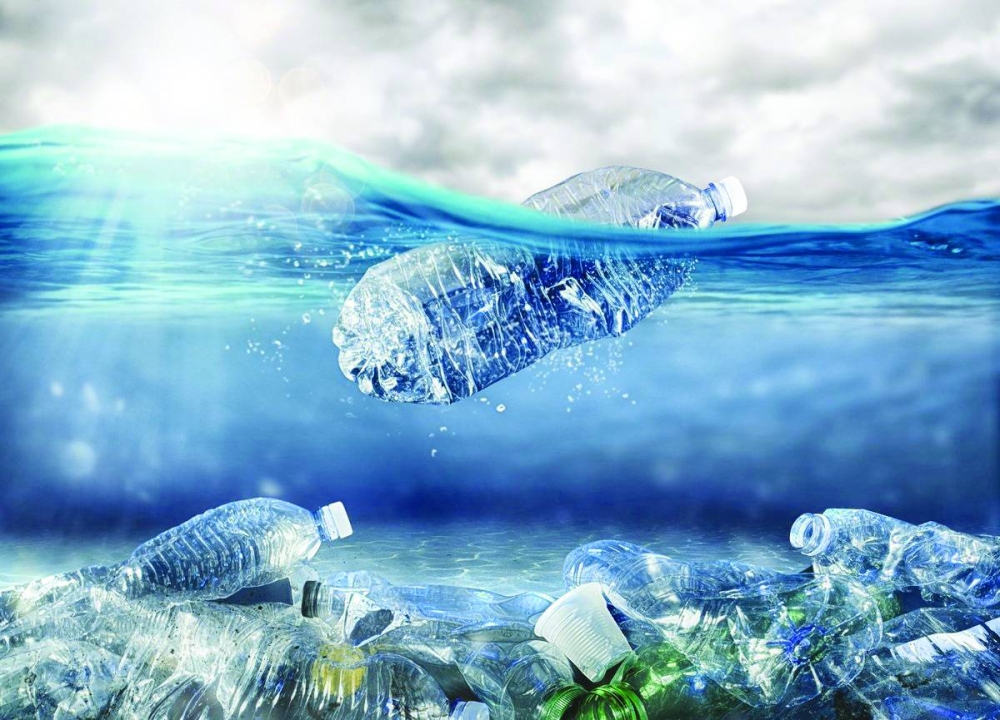World Environment Day was marked in Qatar Monday, and this year's celebration focused on educating people on the importance of preserving the environment, and encouraging them to take measures to reduce pollution, especially plastic pollution.
Qatar attaches great importance to the environment and the safety of all its components.
The Ministry of Environment and Climate Change organised many events and activities to educate the public on the importance of reducing single-use plastic bags and replacing them with other biodegradable environmentally friendly bags and promoting alternatives to plastic in order to ensure the sustainability and safety of the environment as well as explaining and clarifying the harms and harmful effects of plastic on the environment.
During its meeting last year, the Asia-Pacific Group of the Intergovernmental Negotiating Committee (INC) praised Qatar's efforts to reduce plastic pollution and the organisation of the FIFA World Cup Qatar 2022 as the first carbon-neutral and environmentally friendly World Cup tournament.
The group noted the waste and trash sorting mechanism, and the measures adopted by Qatar to reduce the use of plastic in sporting events by cutting its consumption, and recycling it in an environmentally sound manner, in line with the principles of the circular economy, and with the global trends of the Plastics Treaty.
The draft of an international law on plastic pollution is considered a solution aimed at mitigating potential damage resulting from the mismanagement of plastic waste, as it is considered a global, cross-border challenge that requires concerted efforts and joint action to protect the environment.
It is estimated that each person on the planet consumes more than 50,000 plastic particles per year -and many more if inhalation is considered.
Discarded or burnt single-use plastic harms human health and biodiversity and pollutes every ecosystem from mountain tops to the ocean floor. Evidence of plastic pollution has been found even in the most remote place, including Mount Everest, the Mariana Trench and the Arctic.
A global assessment of marine litter and plastic pollution shows that there is a growing threat from marine litter and plastic pollution in all ecosystems from source to sea. It shows that there is a need for the political will and urgent action to tackle this mounting crisis.
In his message on this occasion, UN Secretary-General Antonio Guterres said, "This World Environment Day is a call to beat plastic pollution. Every year, over 400mn tonnes of plastic is produced worldwide — one-third of which is used just once. Every day, the equivalent of over 2,000 garbage trucks full of plastic is dumped into our oceans, rivers, and lakes. The consequences are catastrophic. Microplastics find their way into the food we eat, the water we drink, and the air we breathe."
Guterres added, "Plastic is made from fossil fuels — the more plastic we produce, the more fossil fuel we burn, and the worse we make the climate crisis. But we have solutions.
"Last year, the global community began negotiating a legally binding agreement to end plastic pollution. This is a promising first step, but we need all hands-on deck.
"A new report by the UN Environment Programme shows that we can reduce plastic pollution by 80 % by 2040 — if we act now to reuse, recycle, reorient, and diversify away from plastics.
"We must work as one — governments, companies, and consumers alike — to break our addiction to plastics, champion zero waste, and build a truly circular economy.
"Together, let us shape a cleaner, healthier, and more sustainable future for all."
The World Environment Day is the largest global platform for environmental public outreach and is celebrated by millions of people across the world.
The year 1972 marked a turning point in the development of international environmental politics: the first major conference on environmental issues, convened under the auspices of the UN, was held from June 5-16 in Stockholm (Sweden). Known as the Conference on the Human Environment, or the Stockholm Conference, its goal was to forge a basic common outlook on how to address the challenge of preserving and enhancing the human environment.
Later that year, on December 15, the General Assembly adopted a resolution designating June 5 as World Environment Day and urging "governments and the organisations in the UN to undertake on that day every year world-wide activities reaffirming their concern for the preservation and enhancement of the environment, with a view to deepening environmental awareness and to pursuing the determination expressed at the conference."

